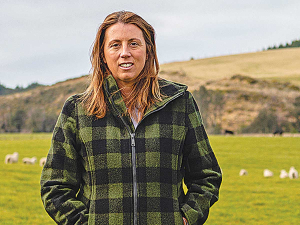The UN called on governments, international institutions, business and other stakeholders to support the development and growth of cooperatives worldwide, and invited all nations to form national steering committees to ensure a coordinated response. In March, 200 guests launched the New Zealand International Year of Cooperatives in the grand hall at Parliament, hosted by the Minister of Commerce Craig Foss, with guest speakers including Rabobank global chairman Piet Moerland and the president of the International Cooperative Alliance, Dame Pauline Green, via video.
Here in New Zealand, producer cooperatives have functioned since 1871, when eight Otago dairy farmers joined forces, investing one pound each to start their own cheese factory. Today, the New Zealand Cooperatives Association has at least 50 members, some big businesses by New Zealand and international standards. Foremost is Fonterra, New Zealand’s only true multinational enterprise and the world’s largest exporter of dairy products. Foodstuffs, with its Pak’nSave and New World brands, and the farmer-owned meat processing companies Alliance Group and Silver Fern Farms, are also large business operations ranked among the world’s 300 largest cooperatives. Others are quite small, found in a variety of sectors such as credit unions, banking, insurance, retailing, taxi companies and vehicle repair shops.
The scale and diversity of New Zealand’s cooperative sector means they play a key role in the daily lives of many New Zealanders. Cooperatives also make a strong contribution to the achievement of the Government’s economic objectives. Compared to other countries, cooperatives and mutuals are a relatively large part of the New Zealand economy – almost 10% of the country’s top 200 businesses, as represented by turnover. New Zealanders have embraced the cooperative model where members own and control their own businesses. The cooperative ethos suits the New Zealand psyche in many ways. The notion of self-help, cooperating, and sharing the profits is particularly strong in rural areas, where many farmers and townsfolk belong to sometimes four or five different cooperatives.
Recently our association commissioned a Horizon Research survey of at least 1000 people. Among the detail that was reinforced is the importance New Zealanders place on the business values of honesty, integrity and ethical standards, which are core pillars of the cooperative structure. Unsurprisingly, New Zealanders overwhelmingly want to do business with companies that display these attributes.
Cooperatives typically put long term gain and business stability ahead of short term profits. This has helped cooperatives come through difficult financial times relatively unscathed, compared to many investor-driven companies. But the word is not getting out there. Cooperatives often don’t perceive the need to communicate their successes any wider than their own membership, meaning the wider community remains uninformed. This is backed up by the Horizon Survey with at least 70% thinking there is insufficient awareness about the difference between cooperatives and investor-owned companies, and 60% would like to see universities, polytechnics, and our accounting and legal associations offering courses on cooperatives.
Consumers and producers are looking for entities they can trust, and where they can be confident of being treated well.
And the top 40 New Zealand cooperatives employ around 50,000 people.
By way of comparison, in the UK, long considered the home of cooperative enterprise, there are10 times the number of cooperatives, employing five times the staff of their New Zealand counterparts. But the combined turnover of the UK cooperatives is not even double the combined revenues generated in this country.
And a statistic I particularly like, as a dairy farmer, is that in farming in the UK, there are 446 cooperatives with a turnover of $8.5 billion. Compare this with dairy co-ops in New Zealand, which alone generated revenue of over $20 billion.
• Blue Read is the chairman of the New Zealand Cooperatives Association.
















